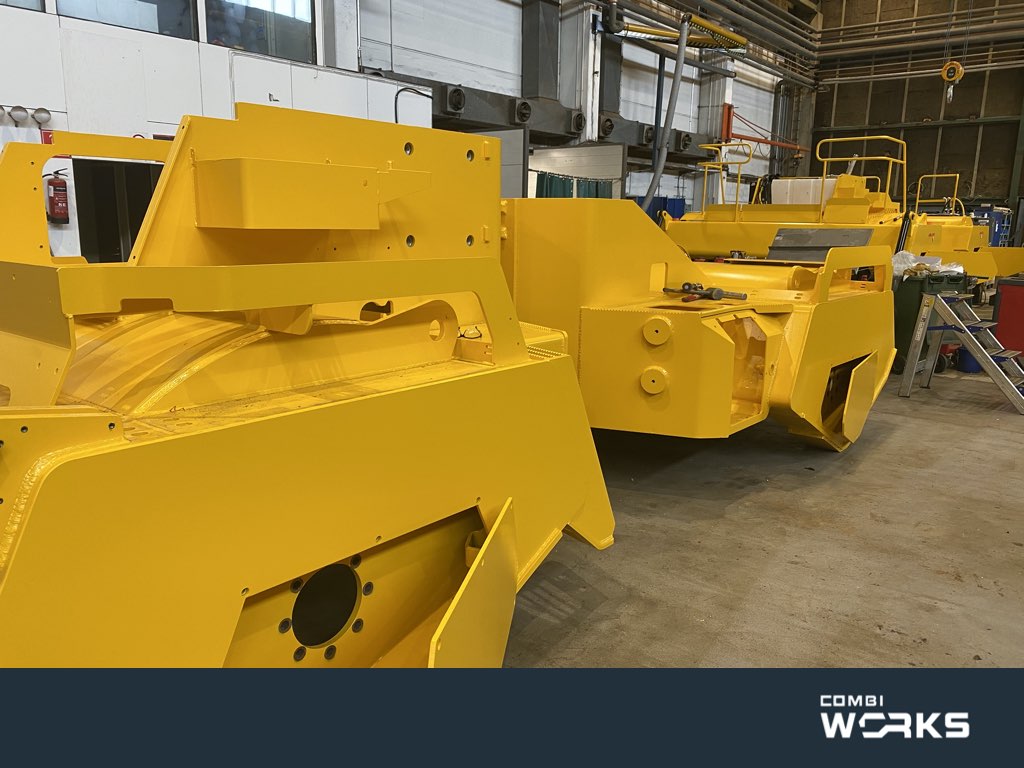- COMPANY
Combi Works ( https://www.combiworks.com/ )
- SEMINAR’s focus
To help expand Factory as a service and make it more efficient by utilizing open source data to improve the market understanding of raw material and other cost component fluctuations in real time.
- DESCRIPTION
Combi Works’ Factory as a Service. We do flexible and scalable manufacturing for industrial equipment manufacturers. Our mission is to allow customers to grow in a scalable way and make manufacturing a strength without fixed investments, reducing the total cost of ownership. Basically, we manufacture for our customers without them needing their own factories or procurement.
We manage our manufacturing and supply chain digitally using the AirFaas software ensuring full visibility for the manufacturing – from RFQs to projects to shipments and quality.

- CHALLENGE
Factory as a Service allows companies to manufacture their products without investing in massive amounts of resources in infrastructure, instead the manufacturing is collaborative. Factory as a Service is an approach to distribute and share the operations that are critical in manufacturing. The distribution aims to use resources more effectively, easing the amount of investment benefiting different organization and lowering the barrier of entry for companies that want to capitalize on new technologies in manufacturing.
In Factory as a Service, companies don’t have to purchase and upgrade the ever-more-complex physical and digital manufacturing machinery needed for the production of their products.Instead companies rely on Factory as a Service for the production and they focus on innovating their own products i.e. their intellectual property. Among the benefits of Factory as a Service for companies is to consolidate costs into an easier-to-manage “single” contract. It means lower overhead and improved profitability. Companies might also have access to manufacturing plants anywhere, while simultaneously these plants might serve several companies. For Factory as a Service to be as successful as possible, it is important to have data to support efficient decision making which is why Combi Works is keen on building a method for extracting and sharing manufacturing data.
For this challenge, we want the participants to contribute to the world of Factory as a Service by addressing how to lower costs by utilizing open source and addressing in particular the acquisition of raw materials and other costs component fluctuations in real time.
- DAY and TIME
Friday March 17th, from 12 to 16hrs.
- SEMINAR LOCATION
University of Turku, Agora Building room 110C
- ENROLLMENT
Please enroll to the seminar session by filling the following form:
https://link.webropol.com/ep/combiworks
The enrollment closes on Tuesday March 14th, at 20hrs.
- PRE-ASSIGNMENT
To prepare ourselves for this session, and enrich our conversation during our time together we should prepare ourselves. We define two for your preparation:
Task 1. Benchmarking to understand the open data ecosystem of raw materials.
Open data is data that anyone can access, use and share. Open data can bring diverse benefits to governments, businesses and individuals. It has the power to help improve services, grow economies and protect our planet.
For this challenge, we want the participants to explore the open data available on the following categories:
– steel
– iron
– coke (coal)
– electricity prices
– manufacturing labor cost
To facilitate your search we will focus on three regions: Asia, Europe, Americas. Select either one country per region or if there is general information of a region you can utilize that information. Utilize the open data of the available materials.
The goal of the benchmark is that you focus on what type of open data is available across regions related to the four five categories indicated above. The open data might include prices and other type of information such as extraction costs, etc. Extract the relevant information on how they report the data.
Your findings in the benchmarking are relevant for the session with Combi Works, as you will utilize your findings when discussing best practices of the data sources and how could Combi Works utilize the information in their own services.
Task 2: Gaining understanding on open source data
Some participants might be already experts on open data extraction and handling, while for others might be a new topic. At UTU we have a research group focusing on the use of open data, and they share us a couple of documents that might give you a wider understanding on how we can use open data.
Please read the following two publication:
(1) Retrieval and analysis of eurostat open data with the eurostat package. Lahti L, Huovari J, Kainu M & Biecek P. The R Journal 9(1), 2017
https://github.com/openresearchlabs/openresearchlabs.github.io/blob/master/content/publication_resources/papers/2017-Lahti-RJournal.pdf
(2) Reflecting upon data from Digital Humanities (DH) or computational social sciences (CSS). Wrangling with non-standard data. Mäkelä E, Lagus K, Lahti L, Säily T, Tolonen M, Hämäläinen M, Kaislaniemi S & Nevalainen T. Proc. Digital humanities in the nordic countries 2612, 2020
https://github.com/openresearchlabs/openresearchlabs.github.io/blob/master/content/publication_resources/papers/2020-Makela-DHN.pdf
After reading the two documents write a summary of what you learned from them and indicate how this knowledge could potentially benefit Factory as a Service.
Submission report (by March 15th at 4pm)
The report should reflect your work done in the preparation for this session, and it will be shared as well with Combi Works. It should include the two tasks of the pre-assignment:
Task 1. Benchmarking study
Describe the open source data that you found for each category on the three different regions. Additionally indicate the information that you detect as relevant for each category. Finally, include the source link of each one of the data source.
Task 2. Linking ideas on open data
After reading the two academic documents share for this taks, please write a summary of what you learned from them and indicate how this knowledge could potentially benefit Factory as Service.
Submit your report, preferably a PDF file by Wednesday March 15th. at 4pm
via email to Carolina Islas caisse [@] utu.fi
with the subject line: COMBI_WORKS_ pre-assignment.
Your file name should be labeled:
COMBI_WORKS_pre-assignment_YOUR-NAME
